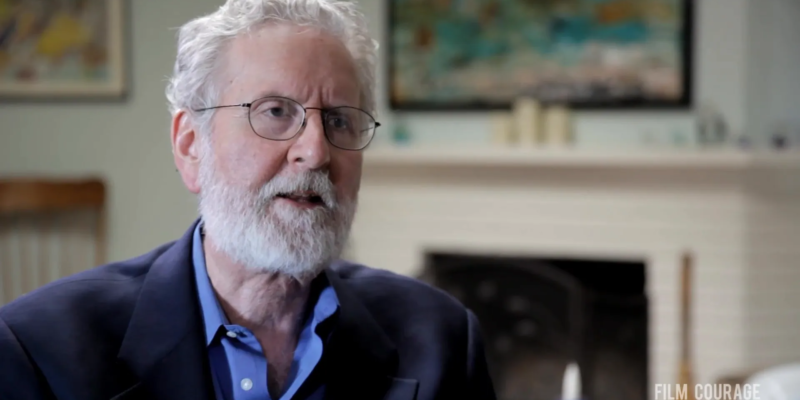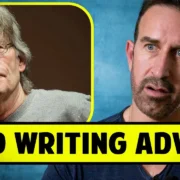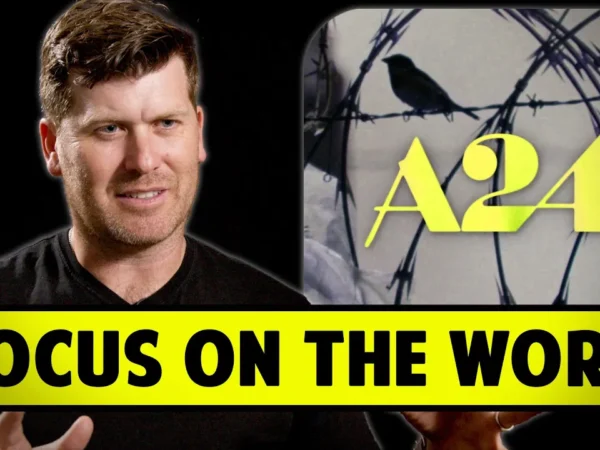
Interview with Michael Hauge, Story Expert and Script Consultant
Have you entered the first 30 pages of your script into the Chip’s Writing Synopsis Contest? Special thanks to Michael Hauge for his sage advice on what screenwriters often get wrong in the first two stages of writing a script in the video above. For more information about the contest and Michael’s valuable screenwriting advice, visit his site.
Table of Contents
- 🚀 What are some common mistakes that writers make in the first two stages of writing the screenplay which compromises the first act and then subsequent acts?
- 📖 What are the specific issues in the early stages that writers face?
- 🎭 How important is character empathy in the setup?
- ⏳ How should writers approach pacing in the first act?
- ❓ FAQ
- 🌟 Conclusion
🚀 What are some common mistakes that writers make in the first two stages of writing the screenplay which compromises the first act and then subsequent acts?
Michael starts by bringing up the hero’s outer motivation. If you don’t know what it is, he says, ‘nine times out of 10 the script isn’t going to work.’ Then he believes that if you don’t have these stages in the first half of the script clearly developed, ‘It’s almost impossible the second half is going to work.
Why is the hero’s outer motivation so crucial?
‘A very clear, visible goal,’ he says, ‘is usually the first step’ in any story. Getting sidetracked by the pursuit of character complexity, or theme, or a clever premise, will only lead to babble and missing the forest for the trees. ‘In Hollywood,’ he points out, ‘so many successful movies are built upon such a simple story idea. Just look at Inception. It may seem convoluted, but its premise at the core is simple: this team of people are trying to infiltrate dreams to manipulate behaviour.’
As Michael underscores, if a writer articulates what the story needs to accomplish, the entire script starts to build on a solid foundation. But while this sounds easy, it’s often not: ‘Writers tend to confuse originality and complexity with clarity,’ he says.
📖 What are the specific issues in the early stages that writers face?
What are the three major mistakes Michael identifies in the first two stages?
- Lack of a clear finish line: Many scripts fail to present a clear and visible finish line that readers or viewers can envision. This lack of clarity can lead to confusion about what the characters are striving for.
- Insufficient setup of the character’s everyday life: Michael stresses the need for a setup that allows the audience to empathize with the character before the main story unfolds. This setup can be brief but crucial for building an emotional connection.
- Jumping too quickly to the outer motivation: Writers often rush their stories, thinking they need to grab the reader’s attention immediately. However, Michael argues that it’s essential to build conflict gradually, allowing the story to develop organically.
But he cautions against starting toward the goal too early in the script, which can induce a schizoid narrative, an artificial speed where the actions seem ‘skittish and dopey’. The first act of the script should, he writes, ‘relentlessly builds’ up to the point at which the character starts ‘actively pursuit[ing]’ his or her goal.
🎭 How important is character empathy in the setup?
What role does empathy play in character development?
‘The first thing,’ Michael tells me, ‘is you have to gain empathy with the character. And they’ve got to be empathetic to you, quickly, so you’re on the person’s side. Then you’re going to see the flaws in them, then you’re going to see the conflict. But the first thing is empathy. Quickly.’
In sharing the common threads of the character’s everyday life, writers establish a basis for empathy that will bolster investment in the character’s arc.
⏳ How should writers approach pacing in the first act?
What advice does Michael give regarding pacing and conflict?
But Michael warns me against letting the story gallop before it’s ready: ‘Films have to move fast, but that’s not an excuse for cutting corners and skipping stuff – like the second week of an outward bound expedition. The first act needs to develop the situation around the protagonist, create a rich gestation period for his or her goal, plant seeds that will bear fruit further down the line, and make us care about the protagonist’s journey.
He stresses that the character is not to begin working towards his goal until 25 per cent of the way into the story. Only then, after we’re fully informed about the stakes and the protagonist’s motivations, will he be able to deliver the payoff that the audience will feel fully satisfied by.
❓ FAQ
What is the most common mistake new writers make?
Lots of new writers create flawed scenarios for their characters, in which nobody outside the script knows what they are trying to achieve.
How can writers improve their character empathy?
They don’t just want writers to think about the high-stakes drama that will hold their attention. They’ll be better affected by character and story though, if they can relate to the everyday life of the character and the stakes he or she grapples with before the main conflict.
Is it okay to have a complex story idea?
Yes, but it’s essential to distill that complexity into a clear and simple goal that can guide the narrative.
How important is the setup in the first act?
The stakes are all in this introductory set-up: they establish the empathy for the character, and they set the tone for everything else that follows.
🌟 Conclusion
In his book Writing Screenplays That Sell (2011), Michael Hauge describes the most common problems found in unsalable screenplays, providing a roadmap for avoiding them. If character motivation is too ambiguous and the empathy factor is lacking, or the story has slow parts where the audience may lose interest, the scriptwriter should be prepared to hear nothing. These are the basics of good writing, honed over hundreds of years of the development of the novel, which many film writers still have not mastered. Yet, if you stick to these simple principles, you have a good chance at a saleable screenplay. Whether you are a jaded screenwriter or a tyro, these are the rules to follow.
For more resources and insights into writing, check out Story Mastery or follow Michael on Twitter.


















